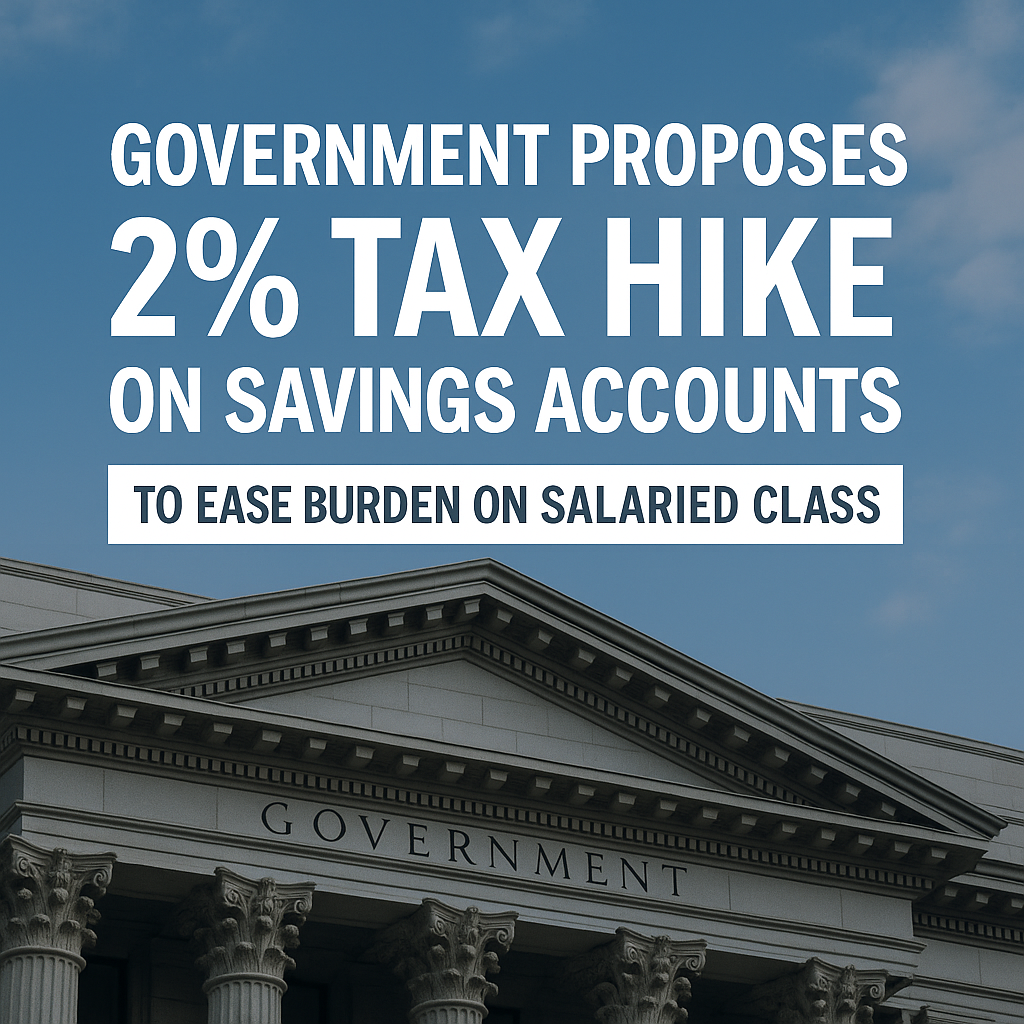
In a strategic move aimed at on condition that relief to Pakistan overburdened salaried class, the federal government is considering a 2% increase in the tax on savings account interest. This proposal pursues to reallocate the tax burden more justifiably across different income groups, particularly in light of the uneven taxation currently shouldered by salaried individuals.
Over recent years, the salaried class in Pakistan has experienced a significant escalation in tax obligations. In the fiscal year 2023-24, income tax collected from salaried individuals surged to Rs368 billion, marking a 39.3% increase from the previous year (ARY News).
This trend continued into the first half of the 2024-25 fiscal year, with collections reaching Rs243 billion—up from Rs157 billion during the same period the previous year (The News International).
The Federal Board of Revenue (FBR) reports that salaried individuals now rank among the top contributors to the national tax pool, even outpacing exporters and retailers in certain periods (FBR Official Website).
The government’s proposal involves increasing the withholding tax on interest income from savings accounts by 2%. This policy is being positioned as a revenue-generation tool that places less financial strain on salaried individuals and instead targets passive income sources.
While salaried individuals contributed Rs243 billion in taxes in just six months, exporters paid only Rs80 billion during the same period. This imbalance highlights the need for a more equitable taxation model (The News).
With the State Bank of Pakistan (SBP) lowering its policy rate from 22% to 12% (SBP Official Website), savers are already earning less on interest income. This makes it a strategic time for the government to introduce a minor tax increase without significantly affecting saving habits.
Moreover, this move aligns with fiscal goals set by international partners like the International Monetary Fund (IMF), which continues to urge Pakistan to broaden its tax base to ensure macroeconomic stability (IMF – Pakistan).
The tax increase may impact individuals who rely on interest income for financial security, such as retirees. However, with interest rates currently low, the absolute effect on their monthly income is expected to be minimal.
By diverting some of the tax burden toward interest earners, this proposal offers direct relief to salaried individuals, especially those in lower and middle-income brackets. If implemented, this may restore some balance and fairness to the national tax structure.
Economists generally support the move as a step toward a fairer tax system. However, many caution that it must be part of a broader strategy that includes tax reforms, digital tracking of income, and improved compliance mechanisms.
The World Bank has repeatedly emphasized the need for Pakistan to strengthen its tax administration to improve revenue collection without overburdening compliant sectors (World Bank – Pakistan Overview).
Similarly, the Asian Development Bank (ADB) has recommended that Pakistan shift away from narrow tax policies and instead pursue structural reforms to stabilize its fiscal framework (ADB – Pakistan).
The proposed 2% increase in the tax on savings account interest marks a notable effort by the Pakistani government to create a more balanced and fair tax environment. While the measure alone won’t resolve the systemic imbalances, it is a clear indication that policymakers are beginning to recognize the plight of the salaried class.
Its effectiveness will depend on broader reforms, enforcement across all income segments, and how well the government can balance fiscal responsibility with public welfare.
No comments yet. Be the first to share your thoughts!
Have questions about our services or need personalized advice? Our team is ready to assist you.